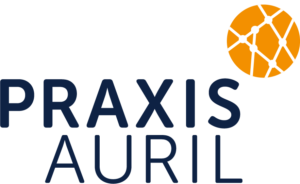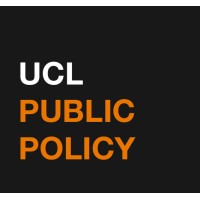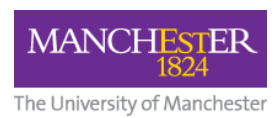Implementing the Knowledge Exchange Framework 2022
Online Conference 6 April 2022, 9:00am - 3:00pm
Day 1
9:00am
Online Registration
9:30am
Chair's Welcome Address
Tamsin Mann, Director of Policy & Communication, PraxisAuril
9:40am
Keynote Address: Evolving The Way That Data Informs Knowledge Exchange Policy And Evolving And Strengthening Knowledge Exchange Metrics
- Exploring Research England's key findings from the review of the first iteration of the Knowledge Exchange Framework
- Analysing the methods and metrics used in the Knowledge Exchange Framework, including findings from the dedicated Metrics Expert Group
- Developing meaningful and reliable indicators that are fit for purpose to understand current practices of the sector
- Exploring how these metrics can continue to evolve for future iterations of the KEF
- Looking forwards to the continued importance of metrics in Knowledge Exchange policy
Ellen Bamford, Head of Data and Evidence in Knowledge Exchange, Research England
10:00am
Keynote Address: Enlarging Research Impact By Engaging With Public Policy
- Building the UCL's capacity to engage with a wider part of public policy through convening roundtables, publishing briefings, managing fellowship programmes, and holding public events
- Boosting the institution's public engagement via establishing UCL Policy Champions Network and collaborating with researchers, academics, and professional services staff
- Fostering a two-way flow of knowledge exchange between the university researchers and policymakers
- Developing 20-year strategy - UCL 2034 to enable the leadership of UCL's research in the policy area and designing effective ways to achieve the goals
Sarah Chaytor, Director of Strategy & Policy, UCL Public Policy
10:20am
Keynote Address: Analysing Trends In Collaboration Between Universities And Business In The UK
- Considering how business-university collaborations have transformed 2021 and the role that collaboration will play in shaping the future
- Harnessing the crucial role of universities and their collaborations with partners in driving innovation
- Examining annual changes and tracking long term trends by examining the annual Collaboration Progress Monitor (CPM)
- Enhancing data on collaboration by reviewing the indicators that are monitored and considering whether any should be added, removed or changed
- Observing the rise of innovation districts and ensuring that more places in the UK host world-leading and globally connected innovation clusters
Joseph Taylor, Senior Policy Manager, National Centre for Universities and Business
10:40am
Questions And Answers Session
11:00am
Break and Networking
11:45am
Case Study: Creating A Dynamic Collaboration Between Businesses And The University Of East London Through Knowledge Transfer Partnerships
- Developing three-way collaborations designed to bring about strategic change
- Introducing new skills and the latest academic thinking to deliver specific strategic innovations
- Embedding expertise and generating new knowledge to foster a culture of innovation
- Gaining access to the university’s world-class knowledge and facilities
- Getting strategic input from a team including experienced academics and business professionals
Professor Verity Brown, Pro Vice Chancellor Impact and Innovation, University of East London
12:15pm
Case Study: Creating A Virtuous Circle - Developing Collaborative Research At The University Of Manchester
- Considering the research talent pipeline, within and outside of academia - developing this from the undergraduate level
- Enabling businesses and academics to see the benefits of academic engagement and relationships that can be leveraged for other projects
- Co-developing research projects that address business need by creating a robust, effective means of engaging with companies
- Conducting a half-day workshop designed and facilitated by a creative consultancy to develop research projects and pitch proposals
- Producing successful outcomes for the university and companies including collaborative research funding proposals, funded PhDs and new-cross disciplinary relationships within the university
Jackie Carter, Director University of Manchester Q-Step Centre, BASS Programme Director, School of Social Science Employability Lead, University of Manchester, and Rachel Kenyon, Business Engagement Manager, University of Manchester
12:45pm
Lunch and Networking
2:00pm
Keynote Address: Making Knowledge Exchange A Core Part Of Higher Education Institutions’ Business By Translating Excellent Research Into Practical Solutions
- Demonstrating how small and specialist higher education providers are part of the solution to the government’s productivity challenges
- Contributing to the Government's Build Back Better Plan for Growth 2021
- Supporting the development of the Knowledge Exchange Framework and ensuring that it adopts a broad definition of knowledge exchange
- Promoting fair and proportional funding to support knowledge exchange activities
Matthew Guest, Head of Local and Regional Engagement, Research and Enterprise Service, University of Central Lancashire
2:20pm
Case Study: Working In Partnership With Clinicians To Develop A Software Tool For Earlier Diagnosis Of Pulmonary Hypertension
- Working collaboratively to apply machine learning and computational modelling to improve the diagnosis of pulmonary hypertension
- The benefits and challenges of embedding knowledge exchange into the project from the beginning and throughout
- Exploiting opportunities for seed funding available due to a knowledge exchange approach
- Using funding from the University of Bath's Impact Fund and UKRI Impact Acceleration Account to collaborate with end-users to develop prototype software
- The journey towards commercialisation and spinout company formation
Dr Andrew Cookson, Lecturer, Department of Mechanical Engineering, University of Bath
2:40pm
Questions And Answer Session
3:00pm
Chair's Summary And Close
*the programme is subject to change.








